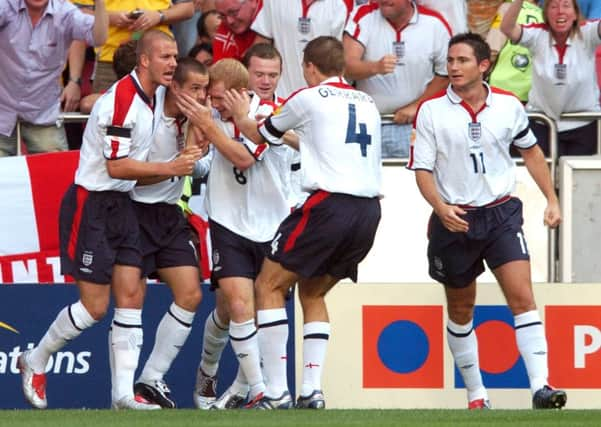From the Dressing Room: Danny Rose


The last time England genuinely had a sniff since the 1966 World Cup was in 1990, where we had one of the best players of that generation to carry us through in Paul Gascoigne.
Yes, we came agonisingly close in 96 but lets not forget that was on home soil, and we scraped past an average Spanish side in the quarter finals on penalties.
Advertisement
Hide AdAdvertisement
Hide AdSpain were not a European powerhouse, and didn’t have an identity at that time themselves.
But what they did have brewing behind the scenes were the next generation of superstars.
Much of this was thanks to the BarcelonaAcademy (La Masia), and in particular Frank Rijkaard whose philosophy on the game changed the way we believed football matches can be won.
‘Tiki Taka’ was a style of play that transfixed the football world.
The beautiful game was being played in a beautiful way.
Advertisement
Hide AdAdvertisement
Hide AdIt is not a coincidence that the success of the Spanish national team walked hand in hand with Barcelona’s European dominance.
Xavi, Iniesta, Puyol, Pique, Busquets, Pedro, Jordi Alba and Fabregas are all products of La Masia, and all have won trophies for Barcelona and their country over the past eight years.
The best player in the world is missing from this list in Lionel Messi, inset, but he also was developed through the famous academy.
Some might say without him they wouldn’t have been as successful.
Advertisement
Hide AdAdvertisement
Hide AdThat’s certainly up for debate, but one thing that isn’t, is that without the team you wont win much on your own.
Messi himself has found that out on the international stage with Argentina many a time.
Eleven players, a squad, a nation, all buying into and believing in a philosophy are far stronger than having one stand out player.
Arguably we haven’t had a player with the abilities of Gazza since 1990, but we have certainly had better teams.
Advertisement
Hide AdAdvertisement
Hide AdScholes, Beckham, Gerrard, Lampard, Ferdinand, Terry, Rooney were the so-called golden generation of English football and yet as a group they all came up short.
I’d like for someone to tell me when that team took the field the style of play they adopted?
How are we trying to play now because I still don’t know?
If that golden generation had a philosophy, a way of playing, an identity, I have no doubt they would’ve come a lot closer to some kind of success.
A final or two during their time perhaps.
When you think of the Italians you think: organised, resolute and technically sound.
Advertisement
Hide AdAdvertisement
Hide AdThey’re always there or thereabouts in the major tournaments. As are the Germans: professional, hard-working and efficient.
They both have a clear identity and rely on these fundamental attributes to be successful.
Whatever the philosophy is, English football needs one.
And if it means sacrificing qualifying for a World Cup or a European Championship in order to develop a generation of players that can gel together over a number of years, then I believe it is worthwhile.